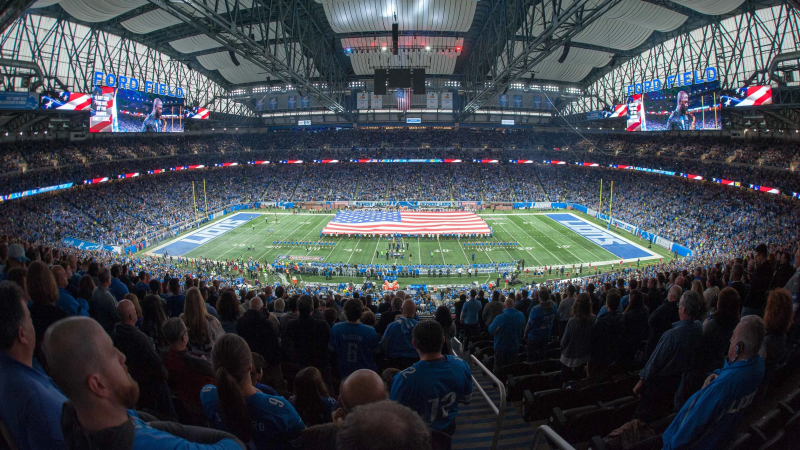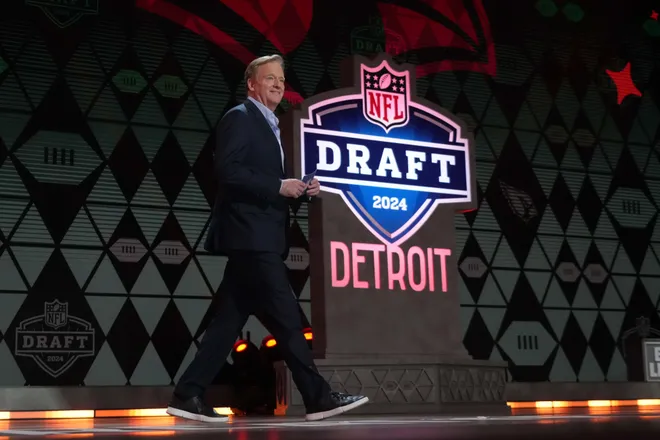NFL diversity, equity, inclusion efforts are noble. But league now target of DEI backlash.

Four years since the death of George Floyd at the hands of police in Minneapolis ignited a racial reckoning across America and inspired a reported 1,100 organizations to pledge some $200 billion to racial justice initiatives supporting DEI – diversity, equity and inclusion – it is a different climate now.
The U.S. Supreme Court last year issued a ruling that restricted race-conscious college admissions. At least 30 states have passed or introduced legislation that eliminates or restricts DEI initiatives. And in corporate America, anti-DEI backlash has gained steam.
How’s this playing in the high-profile NFL?
“The anti-DEI backlash has caused some companies to pause and others to double down on their DEI journey,” Cyrus Mehri, an attorney who helped craft the league’s Rooney Rule more than two decades ago, told USA TODAY Sports. “The companies that stay on track will have a competitive advantage … The NFL is one of the companies that is steadfast and doubling down on its commitment to equal opportunity.”
But the NFL hardly gets a pass. It wasn’t too long ago when the league bungled its handling of the Colin Kaepernick matter, resulting in the former Super Bowl quarterback being essentially banished from the league after inspiring a movement that protested the type of police conduct that was ultimately exposed with Floyd’s death.
NFL STATS CENTRAL: The latest NFL scores, schedules, odds, stats and more.
And two pending lawsuits, a class-action suit headed by Minnesota Vikings defensive coordinator Brian Flores that takes aim at Rooney Rule compliance, and another by former NFL Network reporter Jim Trotter that alleges retaliation by the league in not renewing his contract, raise other questions about the NFL’s employment playing field.
Still, intense spotlight in tow, the NFL continues to increase its DEI efforts in significant areas while some companies roll back commitments. It has continued to expand the Rooney Rule, established in 2003 to originally mandate that teams interview at least one candidate of color for head-coaching vacancies, to apply to a wide range of coaching and front-office positions. It has conducted a so-called Accelerator Program since 2022 that supports rising coaches and prospective general managers. Other initiatives provide exposure for prospective on-field officials and scouts, and every NFL team has a fellowship program for college and entry-level coaches.
“I can’t speak for other companies,” NFL commissioner Roger Goodell said at the conclusion of recent league meetings in Nashville. “I can only speak for the NFL. Diversity has made us better.”

In mid-May, the league unveiled another initiative aimed at vendors, NFL Source. Three years in the making, the procurement program aims to standardize how the league and clubs use local businesses that are typically underrepresented, such as those owned by people of color and/or women. While league-operated events such as the Super Bowl and the NFL draft will have targets to meet, it’s unclear to what extent the 32 teams will “opt-in” to the program. One NFL team owner and a club president from another team indicated to USA TODAY Sports that they aren’t sure, because targets are already in place for using underrepresented local businesses.
In any event, the new initiative holds the promise for allowing opportunities for more diversity in the business community, on the heels of the five team presidents of color named since 2020.
This, while results still lag in some areas where the league has aimed to increase diverse opportunity. The NFL now boasts a record nine head coaches of color and eight general managers of color, yet for the first time since the Rooney Rule came into existence, there will be zero non-white coordinators this season. As in the role that still provides the most-populated path to becoming a head coach.
MORE:NFL coaches diversity report 2023: Pittsburgh Steelers' staff still leads league
“Requirements to the Rooney Rule, as an example, are to consider a diverse slate of candidates," Goodell said. "It’s not a decision-making process. You hire the best people. I think that’s made us better because we have more talented people when you see that diverse slate of candidates.”
Jonathan Beane, the NFL’s chief diversity officer, adds another layer to that thinking when considering broad, strategic goals.
“We just fundamentally believe that DEI is good business,” Beane told USA TODAY Sports. “Look at what we want to achieve. We want to grow our fan base, we want to grow globally. You look at the younger population. Extremely diverse. We have to be committed to diversity and inclusion in order to connect with that.”
There is pushback to such NFL philosophy, rooted in the politics of DEI backlash.
Conservative group alleges 'reverse discrimination' in NFL
In February, America First Legal – a conservative nonprofit group founded by Stephen Miller, formerly a senior policy adviser for former President Donald Trump – filed a complaint with the Equal Employment Opportunity Commission (EEOC) and requested an investigation into the NFL and its clubs alleging reverse discrimination because of the policies and programs aimed to bolster diversity and equal opportunity.
According to the NFL, there is no pending action with the complaint. It’s also worth noting that no white coach has come forward publicly with an alleged reverse-discrimination charge.
“America First’s letter is frivolous,” said Mehri, whose career has been highlighted by anti-discrimination cases. “The EEOC receives about 100,000 EEOC charges a year with evidence of discrimination in the workplace. They conduct dozens of investigations into systemic discrimination based on race, gender and so forth based on statistical and empirical evidence. America First showed up empty-handed with no victims and no statistical evidence.”
Mehri’s conclusion brings to mind his work with the late Johnnie L. Cochran in the early 2000s, which led to the Rooney Rule, named after the late Pittsburgh Steelers owner Dan Rooney. Rooney had been named by then-commissioner Paul Tagliabue to chair the league’s new diversity committee (now chaired by his son, Steelers owner Art Rooney II). As they threatened a lawsuit decades ago, Cochran and Mehri presented a statistical report titled, “Black Coaches in the National Football League: Superior Performance, Inferior Opportunities,” which was based on an analysis (conducted by economist Dr. Janice Madden) of hiring and firing of Black coaches over a 15-year period.
Conversely, politics are seemingly at the root of pushback over the league’s DEI-based policies. According to The New York Times, the NFL is among more than 100 “woke corporations” targeted by America First in EEOC complaints, amicus briefs and lawsuits.
The bullying tactics, if you will, haven't prompted the NFL to budge as political winds intensify.
“We’re trying to stay true to our North Star and make the NFL a reflection of our fans, bringing in the best and most-talented people and vendors that we can,” Dasha Smith, an NFL executive vice president and chief administrative officer, told USA TODAY Sports. “So we’re just staying on course. I know that a number of organizations have pivoted a bit. We’ve made the intentional decision not to do that, to focus on just that a lot of our policies are about equal access to opportunity. It’s not losing that distinction.
“There’s going to be that noise and you can let it distract you,” Smith added. “But we’re not going to do that.”
Challenging the NFL from within
The bigger threats to the league under the umbrella of diversity likely won’t come from outside entities. They could come from the Flores and Trotter cases that challenge the league from within.
Although U.S. District Court Judge Valerie Caproni ruled that the bulk of Flores’ case (and that of co-plaintiffs Ray Horton and Steve Wilks) is to be settled in arbitration as stipulated in the standard contracts for NFL coaches (with Goodell serving as the arbiter), elements of Flores' case alleging violations by the Denver Broncos, New York Giants and Houston Texans in conducting what he considered “sham” interviews to comply with the Rooney Rule, and the league itself, can advance to federal court. As in open court, contrasting the secrecy of arbitration. The NFL has appealed that ruling.
“The NFL is continuing to use all its efforts to push all the claims into confidential arbitration,” David Gottlieb, a partner at Wigdor Law, wrote in an email statement to USA TODAY Sports.
The firm also represents Trotter, whose wrongful termination case received a boost on Wednesday when Judge Jed Radkoff issued a ruling rejecting the NFL’s motion to dismiss. Trotter, who publicly took Goodell and the league to task for employing no people of color in key off-air newsroom positions at the NFL Network – and accuses the league of not living up to the standards of diversity it espouses – did not have an arbitration clause in his contract. Open court it is.
“The NFL is accustomed to avoiding accountability due to its enormous resources, immense power and arbitration agreements that it forced many employees to sign,” Gottlieb wrote. “Having lost this motion to dismiss, and with no arbitration agreement to hide behind, the NFL will finally be forced to answer for its conduct in an open and public forum.”
Stay tuned.
NFL vs. the DEI backlash
The NFL’s commitment to DEI is poised to be further tested. Then again, challenges are inherent to the commitment.
Beane, the diversity officer, acknowledges the political climate and maintains that the NFL has a responsibility to be “unifiers.”
Mehri expresses that hope in stronger language.
“This backlash moment has many people concerned,” he said. “I see it as the last gasp of white nationalism and its treasonous authoritarian corollaries. I see a future – not too far down the road – where America will have a new birth of freedom and democracy rooted in an inclusive democracy where merit rises to the top and where there is more compassion and understanding of people of all backgrounds.”
Which would be quite the measure of DEI in the NFL – and surely beyond.
Disclaimer: The copyright of this article belongs to the original author. Reposting this article is solely for the purpose of information dissemination and does not constitute any investment advice. If there is any infringement, please contact us immediately. We will make corrections or deletions as necessary. Thank you.







